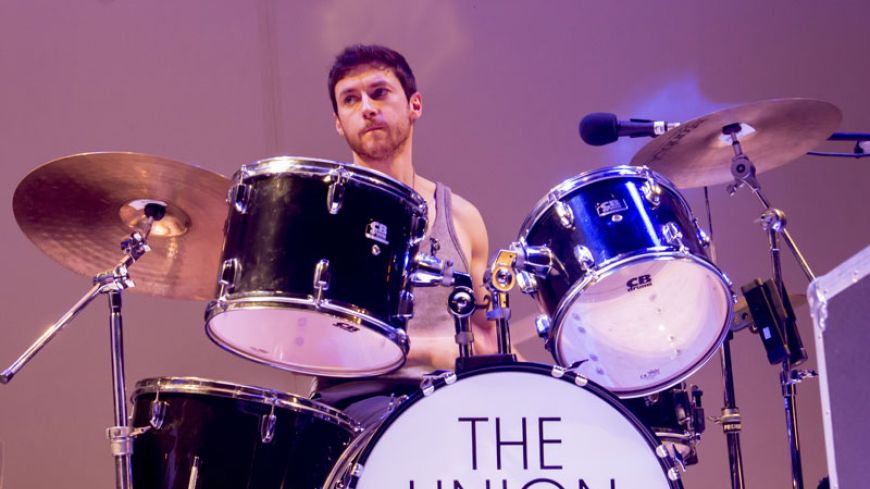
The intriguing question in this new play ‘I’m With The Band’ poses is ‘if the British Isles were a rock band, how would it behave?’
Tim Price’s answer takes us to some interesting places but perhaps unavoidably, doesn’t reach a firm conclusion.
It’s a touch ironic that ‘I’m With The Band’, presented by Canolfan Milenwim Cymru (Wales Millennium Centre) appears as Wales awaits the recommendations of the Silk Commission on greater powers for the Welsh Assembly.
‘I’m With The Band’ is a semi-serious look at Scotland's 2014 Referendum with music as part of the medium, and the quarrels and confusions of the band members (Declan Rogers as Ulsterman Aaron, Andy Clark as Scotsman Barry, James Hillier as Englishman Damien and Matthew Bulgo as Welsh Gruff)
The arrival of bad financial news proves the catalyst for Barry’s resignation from the band and attempt to develop a solo career, from which point the narrative takes us through the reactions of the other band members to this move.
Price’s characters are well judged and well drawn, never tipping into caricature and at some moments (notably in a scene in which Aaron describes some weirdly sadomasochistic sex with his sometime partner Sinead, a parable in itself for the complex relationship of Northern and Southern Ireland.
It’s moments such as that which put the wind beneath the wings of what feels at other times a too careful tiptoe around the unspoken experience of increasingly different dailiness in these islands.
As always, music saves much. ‘The Union’ have a tuneful if sometimes pedestrian sound and the use of title tracks as scene breaks serve the show well, marking the band’s gradual disintegration. However, the premise on which the play is built suggests that its conclusion is almost inevitable, which is rarely the case in history or politics.
Such is the problem with which political theatre has always had to wrestle with; drama and didacticism tend to work against each other, and although Price’s script wisely avoids sending the audience a message, neither can it do more than leave us to ponder an as yet unknowable future.
Runs til 25th August, various times

